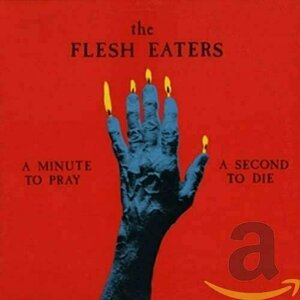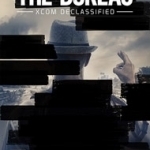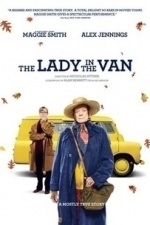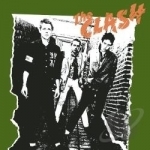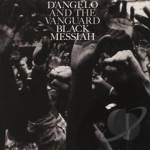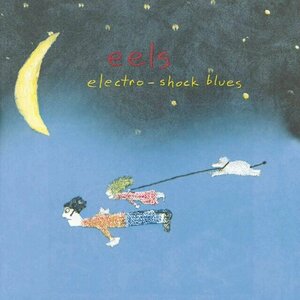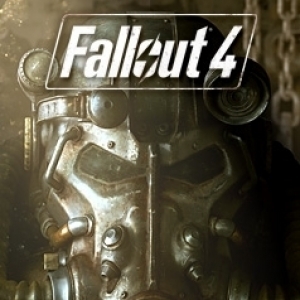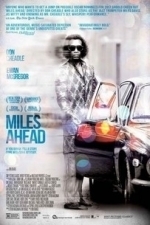Search
Search results
Mark Arm recommended A Minute To Pray, A Second To Die by The Flesh Eaters in Music (curated)
Lenard (726 KP) rated Blinded by the Light (2019) in Movies
Sep 2, 2019
It's a Sin
1987 Luton, UK: New wave rules the radio, Margaret Thatcher controls the country which is leading to closed factories and people losing their jobs, and Pakistanis are moving into neighbors which the "white" majority resents (when people are losing their jobs, it is easier to blame the "others" moving in instead of the government whose policies have led to these losses). But I digress. Ravi is trapped between two cultures, his Pakistani family and the culture he grows up in in Luton. One day at his school, he meets a Sikh student who gives him two cassettes by Bruce Springsteen and he meets a writing teacher who encourages him to write what he knows. Like the culture clash in his soul, his heart is consumed by these Springsteen songs and expressing his feelings through writing. As is wont in these films, his parents and town learn to accept him and his obvious talent.
Two things struck me about the film. The first is the costume for the father. With the exception of the wedding party which I will discuss in my second, the father is dressed in a dress shirt, tie, and slacks, sometimes a sportcoat. This is the traditional outfit of a 1st generation immigrant. Even though he works in a factory manufacturing cars, he still goes to work or out in public dressed like a successful businessman/financial advisor. There is a belief that in order to achieve success, you must dress as though you have already attained that success. The second is the connection to Bend It Like Beckham, Chadha's previous film, which had a lot more success in the US. There is the best friend's parent who accepts the protagonist quicker than their own. But I am talking about the wedding party scene. In both films, the family is having a wedding party and the protagonist has to leave because there is something urgent that they need to do (play in a soccer game, buy tickets to a Springsteen concert). Family members assist the protagonist to get away without the parents noticing and in each case conflict ensues that brings a feeling of abandonment from the immediate family.
Two things struck me about the film. The first is the costume for the father. With the exception of the wedding party which I will discuss in my second, the father is dressed in a dress shirt, tie, and slacks, sometimes a sportcoat. This is the traditional outfit of a 1st generation immigrant. Even though he works in a factory manufacturing cars, he still goes to work or out in public dressed like a successful businessman/financial advisor. There is a belief that in order to achieve success, you must dress as though you have already attained that success. The second is the connection to Bend It Like Beckham, Chadha's previous film, which had a lot more success in the US. There is the best friend's parent who accepts the protagonist quicker than their own. But I am talking about the wedding party scene. In both films, the family is having a wedding party and the protagonist has to leave because there is something urgent that they need to do (play in a soccer game, buy tickets to a Springsteen concert). Family members assist the protagonist to get away without the parents noticing and in each case conflict ensues that brings a feeling of abandonment from the immediate family.
Gareth von Kallenbach (980 KP) rated the PC version of The Bureau: XCOM Declassified in Video Games
Jun 19, 2019
Following a path to release that contained delays, revisions, and fan concerns, The Bureau: XCom Declassified has arrived.
As a fan of the first two games in the series which were icons of the 386 and 486 CPU age, I had been horrified about how badly the series had eroded with subsequent released which moved away from the turned based strategy play in favor of all things, flight simulations and run and gun shooters.
When I heard that 2K was taking over the franchise I was excited but to be honest the first look I had at the game during the 2012 E3 Expo had me wondering if I would ever see a return of the classic game series as the new version seemed to be more of a tactical team based game.
Many fans shared this concern and others and XCom: Enemy Unknown appeased many of the fans concerns by giving fans the updated turn based game that they had hoped for.
The Bureau is set in 1962 and is a nice mix of noire meets the X-Files as it explains the early days of the XCom organization in a solid prequel to the events of the subsequent games.
In 1962 Agent William Carter is tasked with delivering a case to his superiors. Ambushed en route and left for dead, Carter awakens to an alien assault and must battle for his life as he attempts to escape the carnage around him.
Armed with his pistol and in time a rifle, Carter meets up with other survivors and is able to escape and soon finds himself recruited in the new and secret organization known as XCom. The new organization is tasked with stopping the alien threat by any means necessary and despite Carter’s past difficulties, his superior Faulke, is convinced that he is the right man for the job.
Carter is able to command three man teams and prior to each mission selects which agents as well as their equipment will accompany him on his missions. Players will also be able to assign power ups along the way and assign them to various agents. The new abilities are vast and range from calling in support drones and air strikes to levitation, cloaking, and numerous other abilities and attacks based on alien technology.
As with prior XCom games players will have the option to select several side missions or they can focus on the main missions to propel the story, Interacting with other characters not only fills in the story but allows players to get a bigger picture thanks to the dialogue options which allows Carter to ask as many or as few questions as he wants.
In combat, Carter and his team work in a third person perspective and travel through towns, countryside, and other locales to meet the alien threat head on. In combat, players can enter a tactical mode to give move and combat commands to other members of their team as well as provide reviving and healing when needed.
Enemies can be tricky but with proper strategy and some well placed shots or grenades they can be taken down. There is a nice variety of enemies and they get harder as the game moves forward. Players can obtain alien weapons at a later state in the game and being able to use energy weapons is a nice touch as is the ability to wander your base in between missions.
The game does offer some branching storylines as actions taken or not taken will give players one of the games various endings.
I enjoyed the graphics and sound of the game as being able to take cover behind a vintage car and then unleash a barrage on a swarm of enemies from a 60s restaurant or radio station was great fun. I also liked seeing various nods to the classic XCom throughout.
While at times it did play as linear I was happy that there was not as much micro-management as I feared there would be and the game is a lot of fun to play. The enemies did seem to become a bit repetitive as the game went along as while the early missions had some challenge, some of the later ones can be frustratingly difficult.
The voice acting in the game is solid and the banter would be worthy for any classic science fiction or hardcore detective film or novel of the time.
I wish that the game offered a multiplay option as being able to co-op missions would have been great fun but for what it is, the game is a satisfying experience.
In the end, it will not be a classic along the lines of the original but it is a very worthy entry into the series and well worth your time to play especially if you’re a fan of the series.
http://sknr.net/2013/10/03/the-bureau-xcom-declassified/
As a fan of the first two games in the series which were icons of the 386 and 486 CPU age, I had been horrified about how badly the series had eroded with subsequent released which moved away from the turned based strategy play in favor of all things, flight simulations and run and gun shooters.
When I heard that 2K was taking over the franchise I was excited but to be honest the first look I had at the game during the 2012 E3 Expo had me wondering if I would ever see a return of the classic game series as the new version seemed to be more of a tactical team based game.
Many fans shared this concern and others and XCom: Enemy Unknown appeased many of the fans concerns by giving fans the updated turn based game that they had hoped for.
The Bureau is set in 1962 and is a nice mix of noire meets the X-Files as it explains the early days of the XCom organization in a solid prequel to the events of the subsequent games.
In 1962 Agent William Carter is tasked with delivering a case to his superiors. Ambushed en route and left for dead, Carter awakens to an alien assault and must battle for his life as he attempts to escape the carnage around him.
Armed with his pistol and in time a rifle, Carter meets up with other survivors and is able to escape and soon finds himself recruited in the new and secret organization known as XCom. The new organization is tasked with stopping the alien threat by any means necessary and despite Carter’s past difficulties, his superior Faulke, is convinced that he is the right man for the job.
Carter is able to command three man teams and prior to each mission selects which agents as well as their equipment will accompany him on his missions. Players will also be able to assign power ups along the way and assign them to various agents. The new abilities are vast and range from calling in support drones and air strikes to levitation, cloaking, and numerous other abilities and attacks based on alien technology.
As with prior XCom games players will have the option to select several side missions or they can focus on the main missions to propel the story, Interacting with other characters not only fills in the story but allows players to get a bigger picture thanks to the dialogue options which allows Carter to ask as many or as few questions as he wants.
In combat, Carter and his team work in a third person perspective and travel through towns, countryside, and other locales to meet the alien threat head on. In combat, players can enter a tactical mode to give move and combat commands to other members of their team as well as provide reviving and healing when needed.
Enemies can be tricky but with proper strategy and some well placed shots or grenades they can be taken down. There is a nice variety of enemies and they get harder as the game moves forward. Players can obtain alien weapons at a later state in the game and being able to use energy weapons is a nice touch as is the ability to wander your base in between missions.
The game does offer some branching storylines as actions taken or not taken will give players one of the games various endings.
I enjoyed the graphics and sound of the game as being able to take cover behind a vintage car and then unleash a barrage on a swarm of enemies from a 60s restaurant or radio station was great fun. I also liked seeing various nods to the classic XCom throughout.
While at times it did play as linear I was happy that there was not as much micro-management as I feared there would be and the game is a lot of fun to play. The enemies did seem to become a bit repetitive as the game went along as while the early missions had some challenge, some of the later ones can be frustratingly difficult.
The voice acting in the game is solid and the banter would be worthy for any classic science fiction or hardcore detective film or novel of the time.
I wish that the game offered a multiplay option as being able to co-op missions would have been great fun but for what it is, the game is a satisfying experience.
In the end, it will not be a classic along the lines of the original but it is a very worthy entry into the series and well worth your time to play especially if you’re a fan of the series.
http://sknr.net/2013/10/03/the-bureau-xcom-declassified/
Gareth von Kallenbach (980 KP) rated The Lady In The Van (2015) in Movies
Aug 6, 2019
In the last two decades America has seen an almost literal ‘invasion’ of British film and television programming. Like the British ‘music invasion’ some 60 years ago we just can’t seem to get enough of it. Today’s film for your consideration is the 2015 British dramatic comedy ‘The Lady In The Van’. Based upon the 1999 West End play of the same name written by Alan Bennett and starring famed British actress Maggie Smith, who also portrayed the lead in the original stage production at Queens Theater in London and again in a 2009 BBC 4 radio adaption, ‘The Lady In The Van’ follows the true story of Maggie Shepherd. An elderly lady who lived in a rundown van in Bennett’s driveway for 15 years.
Directed by Nicholas Hytner, who also directed the stage play, the film stars legendary British actress Maggie Smith as Maggie Shepherd, Alex Jennings as Alan Bennett, Jim Broadbent as Underwood, Deborah Findlay as Pauline, Roger Allam as Rufus, Gwen Taylor as Mam, Cecillia Noble as Miss Brisco, Nicholas Burns as Giles Perry, Pandora Colin as Mrs Perry, and Frances de la Tour As Ursula Vaughan Williams.
‘The Lady In The Van’ follows the true story of playwright Alan Bennett’s strained and tested relationship with Miss Maggie Shepherd. An eccentric and frightened homeless woman whom he befriended in the 1970s shortly after he moved into London’s Camden neighborhood. Originally, Bennett invites Shepherd to park her aging Bedford van in his driveway so she can list it as an address in order to collect benefits and eventually move on. Instead, Shepherd ends up living in the van in Bennett’s driveway for 15 years. Just before her death in 1989, Alan learns that Maggie Shepherd is actually Margaret Fairchild. A gifted piano player who was a pupil of pianist Alfred Cortot and had a fondness for Chopin. So much so that when she tried to become a nun, she was kicked out of her religious order twice for wanting to play music. Bennett also learns that the reason Shepherd was homeless was that she was on the run for leaving the scene of a crime she didn’t commit after escaping an institution where she’d been committed by her own brother.
I found this movie to be a prime example of the concept ‘Everyone Has A Story To Tell’. Whether the person wants to tell the story or not is a whole other idea entirely. The strange friendship between Bennett and Shepherd is certainly an unusual one to be sure. While Bennett’s neighbors would be happy to see they as they describe ‘the crazy old lady leave the neighborhood, Bennett seems to follow his writer’s instincts and also his humanity. Maggie Smith’s and Alex Jennings’s performances as the oddly paired friends go far in helping to comprehend what went on between the two. Shepherd and Bennett both excelled as artists in their own way. One as a writer one as a musician. Both kinds of artists tell stories thorough their respective crafts. In this case though, the writer (Bennett) had the ‘responsibility’ of telling Shepherd’s story after debating with himself more than once whether he had the right to do so and whether it was moral or not. On top of that, it took over a decade to find the answers Bennett was looking for. In the end, it seems Bennett did what writers do. They use what’s around them in their lives to write about. And perhaps, by doing so, he helped give Shepherd some sort of closure and perhaps peace as well just before her death.
I’m going to give this film 4 out of 5 stars. The movie clocks in at 104 minutes so it is a long movie but honestly, how can you say ‘no’ to a movie with Maggie Smith? Honestly, explain that one to me. She definitely ‘carries the film’ with her performance as Miss Mary Shepherd but the combination of her performance and that of Alex Jennings as the writer Alan Bennett that really make the film. I think another one of the reasons this film was good was because you had so many of the people that were involved in the original play that worked on the film itself. I personally find some British films, comedies in particular, to be a bit quirky sometimes. As funny as British humor is its sometimes difficult to grasp at first and there’s a bit of that in this film. Don’t let that discourage you though. If you can find an awesome art house movie theater, I’d certainly recommend going to catch it there. If you can’t, watch it online.
This is your friendly neighborhood freelance photographer and movie fanatic ‘The CameraMan’ and on behalf of my fellows at Skewed & Reviewed I’d like to say ‘Thanks For Reading’ and we’ll see you at the movies.
Directed by Nicholas Hytner, who also directed the stage play, the film stars legendary British actress Maggie Smith as Maggie Shepherd, Alex Jennings as Alan Bennett, Jim Broadbent as Underwood, Deborah Findlay as Pauline, Roger Allam as Rufus, Gwen Taylor as Mam, Cecillia Noble as Miss Brisco, Nicholas Burns as Giles Perry, Pandora Colin as Mrs Perry, and Frances de la Tour As Ursula Vaughan Williams.
‘The Lady In The Van’ follows the true story of playwright Alan Bennett’s strained and tested relationship with Miss Maggie Shepherd. An eccentric and frightened homeless woman whom he befriended in the 1970s shortly after he moved into London’s Camden neighborhood. Originally, Bennett invites Shepherd to park her aging Bedford van in his driveway so she can list it as an address in order to collect benefits and eventually move on. Instead, Shepherd ends up living in the van in Bennett’s driveway for 15 years. Just before her death in 1989, Alan learns that Maggie Shepherd is actually Margaret Fairchild. A gifted piano player who was a pupil of pianist Alfred Cortot and had a fondness for Chopin. So much so that when she tried to become a nun, she was kicked out of her religious order twice for wanting to play music. Bennett also learns that the reason Shepherd was homeless was that she was on the run for leaving the scene of a crime she didn’t commit after escaping an institution where she’d been committed by her own brother.
I found this movie to be a prime example of the concept ‘Everyone Has A Story To Tell’. Whether the person wants to tell the story or not is a whole other idea entirely. The strange friendship between Bennett and Shepherd is certainly an unusual one to be sure. While Bennett’s neighbors would be happy to see they as they describe ‘the crazy old lady leave the neighborhood, Bennett seems to follow his writer’s instincts and also his humanity. Maggie Smith’s and Alex Jennings’s performances as the oddly paired friends go far in helping to comprehend what went on between the two. Shepherd and Bennett both excelled as artists in their own way. One as a writer one as a musician. Both kinds of artists tell stories thorough their respective crafts. In this case though, the writer (Bennett) had the ‘responsibility’ of telling Shepherd’s story after debating with himself more than once whether he had the right to do so and whether it was moral or not. On top of that, it took over a decade to find the answers Bennett was looking for. In the end, it seems Bennett did what writers do. They use what’s around them in their lives to write about. And perhaps, by doing so, he helped give Shepherd some sort of closure and perhaps peace as well just before her death.
I’m going to give this film 4 out of 5 stars. The movie clocks in at 104 minutes so it is a long movie but honestly, how can you say ‘no’ to a movie with Maggie Smith? Honestly, explain that one to me. She definitely ‘carries the film’ with her performance as Miss Mary Shepherd but the combination of her performance and that of Alex Jennings as the writer Alan Bennett that really make the film. I think another one of the reasons this film was good was because you had so many of the people that were involved in the original play that worked on the film itself. I personally find some British films, comedies in particular, to be a bit quirky sometimes. As funny as British humor is its sometimes difficult to grasp at first and there’s a bit of that in this film. Don’t let that discourage you though. If you can find an awesome art house movie theater, I’d certainly recommend going to catch it there. If you can’t, watch it online.
This is your friendly neighborhood freelance photographer and movie fanatic ‘The CameraMan’ and on behalf of my fellows at Skewed & Reviewed I’d like to say ‘Thanks For Reading’ and we’ll see you at the movies.
Emeli Sande recommended track Really Love (with D'Angelo / D'Angelo & The Vanguard) by D'Angelo / D'Angelo and the Vanguard in Black Messiah by D'Angelo / D'Angelo and the Vanguard in Music (curated)
Jonathan Higgs recommended Electro-Shock Blues by Eels in Music (curated)
Gareth von Kallenbach (980 KP) rated the PlayStation 4 version of Fallout 4 in Video Games
Jun 19, 2019
When Fallout 4 was first announced last June at E3, I like many gamers was thrilled for the latest chapter in this ongoing and enduring series. The fact that Bethesda was able to deliver successfully on the November release date was even more amazing as was the incredible stability, complexity, and fun of the game.
While we featured the game extensively on our holiday gift guides and radio segments, I opted to wait to do the full review until I had spent more time with the game. The story the game is very compelling and that you’re a father looking to recover his son in a post-apocalyptic world. The interactions that NPC characters are extremely enjoyable, as is the open world and highly customizable nature of the game. There are countless options for weapon and clothing customization, side quests, weapons, your armor, and even your companion. All of this helps make the game ending incredibly complex, diverse, and deeply rewarding experience.
I have to admit that I do have some frustration with the menu system as for me; I’m not a big fan of micromanagement and I have to admit that I found crafting a bit frustrating at times. I remember an early mission where I had to construct a transmitter to be very frustrating as I could not seem to get all of the completed parts together.
The beauty of the game though was that I was able to go off on other quests, combat enemies, trade, craft, customize, explore, and more so that I was able to be more than entertained when I got caught up in a segment. I really enjoyed being able to do things like raid an enemy base and take down numerous bad guys as well is combat mutated creatures. The longer I spend with the game, the more I began to appreciate the complexity of it in that there are multiple ways to play it, when it, and enjoy it. I’ve heard of players who achieve great things without even leaving the vault area at the start of the game. There are players spend a considerable amount of time crafting their community, appearance, and weaponry to find the best overall gaming experience.
I and the other hand like it sleek and simple, and prefer to get right down to the action. Now this course cause me to learn some patience as I would often overload my character was salvage and had to learn quickly what is useful to keep, sell, and discard. Combat was extremely satisfying although I did get a little hung up at times having to change weapons in my Pip Boy. I would’ve liked a little more streamlined approach where I could have several weapons stage as well as grenades without having to access a menu during heated moments. Naturally I understand this is a frustration from a PC gamer’s perspective and those playing the game on a console don’t have the luxury of multiple hotkeys to assign.
From the solid voice acting, enjoyable story, numerous customizations, an abundance of fun and action filled moments; Fallout 4 is the rare game that delivers on what fans expect as well as brings an abundance of options and enjoyment to the game will be on the first play through. Not only is the game one of the better releases of 2015, but one can argue that it is one of the better game releases ever not just of the series which is high praise indeed. I cannot wait to see what comes next for the series as this is been a trip well worth taking.
http://sknr.net/2016/01/23/fallout-4/
While we featured the game extensively on our holiday gift guides and radio segments, I opted to wait to do the full review until I had spent more time with the game. The story the game is very compelling and that you’re a father looking to recover his son in a post-apocalyptic world. The interactions that NPC characters are extremely enjoyable, as is the open world and highly customizable nature of the game. There are countless options for weapon and clothing customization, side quests, weapons, your armor, and even your companion. All of this helps make the game ending incredibly complex, diverse, and deeply rewarding experience.
I have to admit that I do have some frustration with the menu system as for me; I’m not a big fan of micromanagement and I have to admit that I found crafting a bit frustrating at times. I remember an early mission where I had to construct a transmitter to be very frustrating as I could not seem to get all of the completed parts together.
The beauty of the game though was that I was able to go off on other quests, combat enemies, trade, craft, customize, explore, and more so that I was able to be more than entertained when I got caught up in a segment. I really enjoyed being able to do things like raid an enemy base and take down numerous bad guys as well is combat mutated creatures. The longer I spend with the game, the more I began to appreciate the complexity of it in that there are multiple ways to play it, when it, and enjoy it. I’ve heard of players who achieve great things without even leaving the vault area at the start of the game. There are players spend a considerable amount of time crafting their community, appearance, and weaponry to find the best overall gaming experience.
I and the other hand like it sleek and simple, and prefer to get right down to the action. Now this course cause me to learn some patience as I would often overload my character was salvage and had to learn quickly what is useful to keep, sell, and discard. Combat was extremely satisfying although I did get a little hung up at times having to change weapons in my Pip Boy. I would’ve liked a little more streamlined approach where I could have several weapons stage as well as grenades without having to access a menu during heated moments. Naturally I understand this is a frustration from a PC gamer’s perspective and those playing the game on a console don’t have the luxury of multiple hotkeys to assign.
From the solid voice acting, enjoyable story, numerous customizations, an abundance of fun and action filled moments; Fallout 4 is the rare game that delivers on what fans expect as well as brings an abundance of options and enjoyment to the game will be on the first play through. Not only is the game one of the better releases of 2015, but one can argue that it is one of the better game releases ever not just of the series which is high praise indeed. I cannot wait to see what comes next for the series as this is been a trip well worth taking.
http://sknr.net/2016/01/23/fallout-4/
Gareth von Kallenbach (980 KP) rated Miles Ahead (2016) in Movies
Aug 6, 2019
If you’ve ever found yourself in a coffee shop, bookstore, or perhaps even a jazz club in the 21st century you can’t NOT have heard either the name ‘Miles Davis’, his music, or perhaps both. If you’ve been living under a rock your whole life and by some miracle you have a smartphone, computer, or a radio find a jazz station and it’s almost a sure thing you’ll here his music within minutes. The man is no myth although the man and his music are so legendary there is almost a mythical presence to him. He is one of the greats. No question. No argument.
‘Miles Ahead’ is a biopic about the legendary jazz musician directed by and staring Don Cheadle who also co-wrote the film with Steven Baigelman, Christopher Wilkinson, and Steven J. Rivele.
Emayatzy Corinealdi, Ewan McGregor, Michael Stuhlbarg, and Keith Stanfield. Rather than focus on the entire life of the great jazz musician which could encompass several films and take up an entire archive, the film focuses mainly on a period in Davis’s life where he is living in relative seclusion in his home in New York City after having retreated from the public spotlight five years previously. Miles endeavors to begin recording and playing music once again after combating addictions to alcohol and cocaine which he indulged in to deal with his wife leaving him and the heavy stress brought upon him by a loss of inspiration to compose music. At about this same time ‘Rolling Stone’ reporter Dave Braden (McGregor), a borderline paparazzi of the time but not quite, calls upon Davis begging him to let him write about Davis’s great comeback. After several futile attempts on the part of Braden, Davis reluctantly agrees after Braden introduces him to a new dealer willing to supply him with high-grade cocaine. What follows is something thats almost out of a Hunter S. Thompson book as the two attempt to recover a demo tape of Davis’s most recent recordings from a low level gangster/manager/agent who stole the from Davis’s home. Amongst the drugs and the booze and the gun fights and car chases there are brief flashbacks into Miles’s past where he relives times good and bad with his wife Frances (Corinealdi). How they met, how they lived, and how she inspired some of his greatest works through her graceful dancing and their mutual love for classical music like Eric Satie, Chopin, and Stravinsky and how he eventually lost her due to his addictions and indulgences.
For such a brief glimpse into the life of one of music’s greatest, the movie was quite well done. It was clearly a labor of love for Mr. Cheadle who had his hands in nearly every aspect of the movie and went so far as to learn to play the trumpet so he could actually play the music himself in the movie. The actor, who is amongst the best and most underrated of our time, reportedly spent six years making this film. The background music is mostly comprised of tracks from arguably one of Davis’s best albums ‘Sketches Of Spain’ and selections of his work is played by Cheadle himself. It’s sometimes difficult to tell whether the movie is more about the music or the man himself. Does it honestly matter though? In many ways, they’re one in the same are they not? The movie is rated R for scenes with violence, adult language, and intimate scenes. I’d give it 4 out of 5 stars. The only negative thing I have to say about is that I wish there had been more about the life of the man. His beginnings. Like when he was accepted into the Juilliard School of Music in New York only to drop out. His days spent jamming with Charlie Parker. Again, that would encompass far more time than one would consider ‘feasible’ for a movie.
‘Miles Ahead’ is a biopic about the legendary jazz musician directed by and staring Don Cheadle who also co-wrote the film with Steven Baigelman, Christopher Wilkinson, and Steven J. Rivele.
Emayatzy Corinealdi, Ewan McGregor, Michael Stuhlbarg, and Keith Stanfield. Rather than focus on the entire life of the great jazz musician which could encompass several films and take up an entire archive, the film focuses mainly on a period in Davis’s life where he is living in relative seclusion in his home in New York City after having retreated from the public spotlight five years previously. Miles endeavors to begin recording and playing music once again after combating addictions to alcohol and cocaine which he indulged in to deal with his wife leaving him and the heavy stress brought upon him by a loss of inspiration to compose music. At about this same time ‘Rolling Stone’ reporter Dave Braden (McGregor), a borderline paparazzi of the time but not quite, calls upon Davis begging him to let him write about Davis’s great comeback. After several futile attempts on the part of Braden, Davis reluctantly agrees after Braden introduces him to a new dealer willing to supply him with high-grade cocaine. What follows is something thats almost out of a Hunter S. Thompson book as the two attempt to recover a demo tape of Davis’s most recent recordings from a low level gangster/manager/agent who stole the from Davis’s home. Amongst the drugs and the booze and the gun fights and car chases there are brief flashbacks into Miles’s past where he relives times good and bad with his wife Frances (Corinealdi). How they met, how they lived, and how she inspired some of his greatest works through her graceful dancing and their mutual love for classical music like Eric Satie, Chopin, and Stravinsky and how he eventually lost her due to his addictions and indulgences.
For such a brief glimpse into the life of one of music’s greatest, the movie was quite well done. It was clearly a labor of love for Mr. Cheadle who had his hands in nearly every aspect of the movie and went so far as to learn to play the trumpet so he could actually play the music himself in the movie. The actor, who is amongst the best and most underrated of our time, reportedly spent six years making this film. The background music is mostly comprised of tracks from arguably one of Davis’s best albums ‘Sketches Of Spain’ and selections of his work is played by Cheadle himself. It’s sometimes difficult to tell whether the movie is more about the music or the man himself. Does it honestly matter though? In many ways, they’re one in the same are they not? The movie is rated R for scenes with violence, adult language, and intimate scenes. I’d give it 4 out of 5 stars. The only negative thing I have to say about is that I wish there had been more about the life of the man. His beginnings. Like when he was accepted into the Juilliard School of Music in New York only to drop out. His days spent jamming with Charlie Parker. Again, that would encompass far more time than one would consider ‘feasible’ for a movie.
